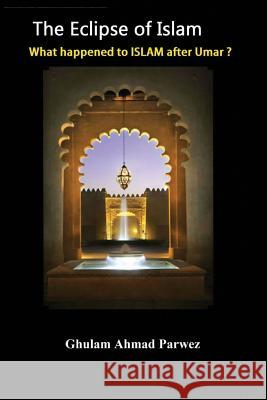The eclipse of Islam: What happened to Islam after Umar? » książka
The eclipse of Islam: What happened to Islam after Umar?
ISBN-13: 9780990976608 / Angielski / Miękka / 2014 / 142 str.
Addressing the opening session of the 10th Islamic Summit Conference in Malaysia on October 16, 2003, the former Prime Minister of Malaysia, Dr Mahathir bin Mohammad, lamented that the Muslim Ummah is divided into several groups and sub-groups. "Over the last 1400 years the interpreters of Islam, the learned ones, the ulamas have interpreted and reinterpreted the single Islamic religion brought by Prophet Muhammad (Peace Be Upon Him), so differently that now we have a thousand religions which are often so much at odds with one another that we often fight and kill each other," Mahathir said adding: "From being a single Ummah we have allowed ourselves to be divided into numerous sects, mazhabs and tarikats, each more concerned with claiming to be the true Islam than our oneness as the Islamic Ummah." This treatise will help in understanding the cause and emergence of this division in Ummah. This is the 14th and final chapter of the biography of the Second Caliph of Islam, Umar Bin Khattab, which provides an analytical story of the political and intellectual difficulties in the history of Islam. Allama Ghulam Ahmed Parwez has virtually compressed several thousand pages of Islamic history into the 100 or so pages of this chapter. This exhaustive chapter may be described as an independent and comprehensive book. This work of Parwez is purely an academic and research enterprise with extensive references to early Islamic books. This study does not aim to offend any individual or group. It should be read in a spirit of knowledge-seeking. Historical facts are facts; history cannot be swept clean like a blackboard and, as Aldous Huxley says, facts do not cease to exist because they are ignored. It is said that knowledge of the past is the key to understanding the present. There is always a connection between the way in which we contemplate the past and the way in which we contemplate the present. German philosopher Soren Kierkegaard believed that life must be lived forward, but it can only be understood backward."











